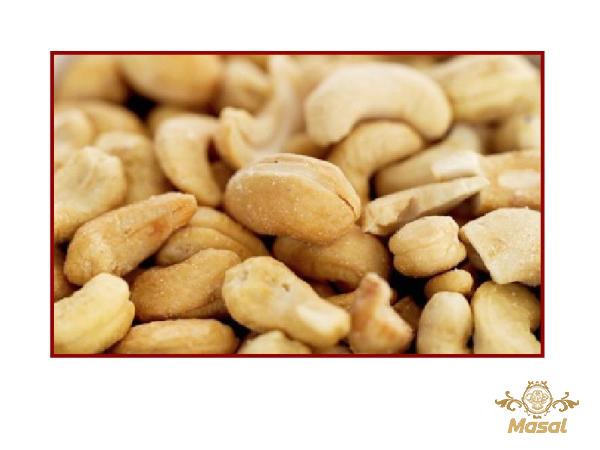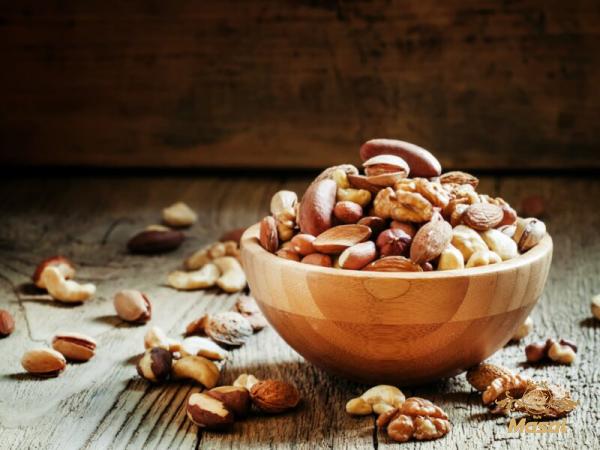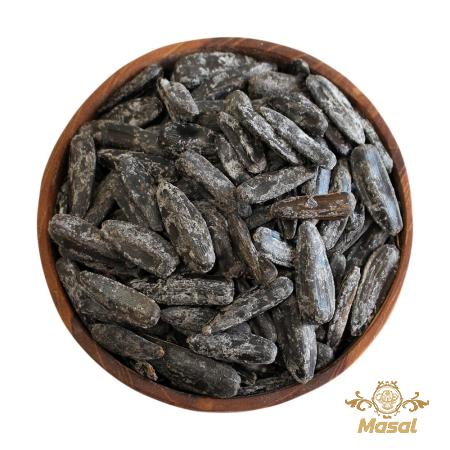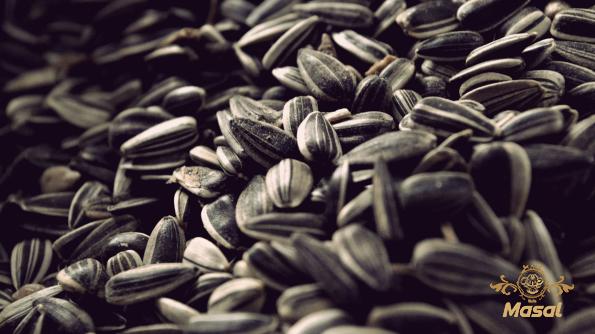Raw cashew nuts, with their distinct kidney-shaped appearance, originated in northeastern Brazil but are now cultivated in several tropical regions worldwide. While commonly associated with snack foods or used in cooking, raw cashew nuts also possess a diverse range of potential applications in the culinary world. This article aims to explore the culinary benefits of raw cashew nuts by discussing their nutritional profile, their versatility in various dishes, and their role in vegan and gluten-free cooking. Nutritional Profile: Raw cashew nuts pack a powerful nutritional punch. They are rich in unsaturated fats, making them an excellent source of energy. They also contain a high amount of protein, making them a valuable addition to vegetarian and vegan diets. Additionally, raw cashew nuts contain essential minerals such as magnesium, phosphorus, and zinc, which are important for maintaining bodily functions. Moreover, they are a good source of dietary fiber and contain a variety of vitamins, including vitamin E, vitamin K, and several B vitamins. Culinary Versatility: Raw cashew nuts offer versatile possibilities in the culinary world. They can be roasted, ground, or even consumed as is, providing a crunchy texture and a delicate, buttery flavor. These versatile nuts can be used in a myriad of dishes, adding depth and richness to both savory and sweet recipes. Let’s explore some common culinary applications of raw cashew nuts. 1. Cashew Cream and Milk: Raw cashews are a great base for creating creamy dairy alternatives. Soaking and blending raw cashew nuts with water can yield a smooth and luscious cashew cream or milk. This alternative is a popular choice among individuals with lactose intolerance or those seeking a plant-based alternative to traditional dairy products. Cashew cream can be used in a variety of dishes, including desserts, soups, and sauces, imparting a rich and creamy texture. 2. Cashew Butter: Cashew butter is a popular spread that can be used as a healthier alternative to traditional peanut butter. It can be made by grinding raw cashew nuts into a smooth, spreadable consistency. Cashew butter adds a nutty and creamy taste to toast, fruit, or can be used as a versatile ingredient in baking. 3. Culinary Binding Agent: Raw cashew nuts, when blended into a fine powder, can act as a binding agent in various recipes, replacing traditional ingredients like eggs or breadcrumbs. This makes cashews a useful ingredient for vegan cooking or for those with egg or gluten sensitivities. Cashew powder can be used to make vegan cheese, plant-based burgers, or as a coating for crispy baked or fried dishes. 4. Cashew Crusts: The natural oils and texture of raw cashew nuts make them ideal for creating delicious crusts. Ground cashews can be combined with spices or herbs to create flavorful coatings for roasted vegetables, poultry, fish, or tofu. The unique taste and texture of cashew crusts add an extra dimension of flavor to your favorite dishes. 5. Desserts and Baked Goods: Raw cashew nuts can elevate many desserts and baked goods, imparting a rich texture and a hint of sweetness. When blended with dates and other natural sweeteners, cashew nuts provide a versatile base for creating raw and guilt-free desserts such as cheesecakes, energy balls, and fudge. Additionally, cashews can be ground into flour, offering a gluten-free alternative for baking bread, cookies, and other treats.

nut
 Vegan and Gluten-Free Cooking: Raw cashew nuts play a crucial role in vegan and gluten-free cooking. Their naturally creamy texture and mild flavor make them an ideal substitute for dairy in vegan recipes. By blending raw cashews with other plant-based ingredients such as tofu or nutritional yeast, vegans can create delicious and dairy-free alternatives like vegan cheeses, sauces, and desserts. Furthermore, raw cashew nuts can replace wheat-based flours, making them a suitable choice for individuals following a gluten-free diet. Their ability to create satisfying textures and consistency in gluten-free baking is a game-changer for those with dietary restrictions. Health Benefits and Considerations: While raw cashew nuts offer numerous health benefits, moderation is essential due to their high-calorie content. It’s worth noting that raw cashews can also trigger allergic reactions in individuals with nut allergies. As with any food, it is always advisable to consult with a healthcare professional before making significant changes to your diet. Conclusion: The culinary potential of raw cashew nuts is far-reaching, offering a range of options for both savory and sweet dishes. Their nutritional profile, versatility, and ability to replace dairy and wheat make them a valuable ingredient in vegan and gluten-free cooking. From spreads and creams to crusts and desserts, raw cashew nuts can add richness, flavor, and texture to a wide array of culinary creations. However, it is important to consume them in moderation and be aware of any potential allergenic effects.1. Raw Cashew Nuts as a Popular Ingredient in Snack Foods: Raw cashew nuts are widely used as a primary ingredient in snack foods. They are often roasted and salted to create a delicious and satisfying snack option. Roasted cashews have a distinct nutty flavor and provide a satisfying crunch that appeals to a wide range of consumers. They can be found in various forms, including whole, halved, or in smaller pieces, making them suitable for both individual snacking and inclusion in trail mixes and nut blends. The popularity of raw cashews in the snack industry can be attributed to their nutritional benefits and versatility in taste and texture. 2. The Role of Raw Cashew Nuts in Culinary Innovation: The culinary industry constantly seeks innovative and unique flavors and textures to excite consumers. Raw cashew nuts have emerged as a versatile ingredient in this regard. Chefs and food enthusiasts are experimenting with raw cashews, exploring new ways to incorporate them into dishes and create exciting flavor combinations. For example, cashews can be ground and used as a breadcrumb substitute for a gluten-free coating on poultry or fish. They can also be used to create cashew-based sauces, dressings, and spreads, enhancing the taste and appeal of various dishes. 3. Raw Cashew Nuts and the Growing Demand for Plant-based Protein: The increasing demand for plant-based protein sources is driving the popularity of raw cashew nuts in the food industry. With a significant protein content, raw cashew nuts provide a valuable option for those seeking plant-based protein alternatives.
Vegan and Gluten-Free Cooking: Raw cashew nuts play a crucial role in vegan and gluten-free cooking. Their naturally creamy texture and mild flavor make them an ideal substitute for dairy in vegan recipes. By blending raw cashews with other plant-based ingredients such as tofu or nutritional yeast, vegans can create delicious and dairy-free alternatives like vegan cheeses, sauces, and desserts. Furthermore, raw cashew nuts can replace wheat-based flours, making them a suitable choice for individuals following a gluten-free diet. Their ability to create satisfying textures and consistency in gluten-free baking is a game-changer for those with dietary restrictions. Health Benefits and Considerations: While raw cashew nuts offer numerous health benefits, moderation is essential due to their high-calorie content. It’s worth noting that raw cashews can also trigger allergic reactions in individuals with nut allergies. As with any food, it is always advisable to consult with a healthcare professional before making significant changes to your diet. Conclusion: The culinary potential of raw cashew nuts is far-reaching, offering a range of options for both savory and sweet dishes. Their nutritional profile, versatility, and ability to replace dairy and wheat make them a valuable ingredient in vegan and gluten-free cooking. From spreads and creams to crusts and desserts, raw cashew nuts can add richness, flavor, and texture to a wide array of culinary creations. However, it is important to consume them in moderation and be aware of any potential allergenic effects.1. Raw Cashew Nuts as a Popular Ingredient in Snack Foods: Raw cashew nuts are widely used as a primary ingredient in snack foods. They are often roasted and salted to create a delicious and satisfying snack option. Roasted cashews have a distinct nutty flavor and provide a satisfying crunch that appeals to a wide range of consumers. They can be found in various forms, including whole, halved, or in smaller pieces, making them suitable for both individual snacking and inclusion in trail mixes and nut blends. The popularity of raw cashews in the snack industry can be attributed to their nutritional benefits and versatility in taste and texture. 2. The Role of Raw Cashew Nuts in Culinary Innovation: The culinary industry constantly seeks innovative and unique flavors and textures to excite consumers. Raw cashew nuts have emerged as a versatile ingredient in this regard. Chefs and food enthusiasts are experimenting with raw cashews, exploring new ways to incorporate them into dishes and create exciting flavor combinations. For example, cashews can be ground and used as a breadcrumb substitute for a gluten-free coating on poultry or fish. They can also be used to create cashew-based sauces, dressings, and spreads, enhancing the taste and appeal of various dishes. 3. Raw Cashew Nuts and the Growing Demand for Plant-based Protein: The increasing demand for plant-based protein sources is driving the popularity of raw cashew nuts in the food industry. With a significant protein content, raw cashew nuts provide a valuable option for those seeking plant-based protein alternatives.
Specifications of nut
 Cashew-based products, such as cashew milk, cheese, and spreads, have gained popularity among vegetarians, vegans, and individuals looking to reduce their meat consumption. As a sustainable protein source, raw cashews contribute to the growing movement towards more environmentally friendly and ethical food choices. 4. Raw Cashews and the Rising Interest in Nutritional Snacking: Consumers today are more health-conscious than ever, seeking nutritious snack options that still satisfy their cravings. Raw cashew nuts are well-positioned in the market to meet this demand. They are naturally low in cholesterol and sodium, making them a healthier snacking choice compared to processed snacks. Additionally, raw cashews contain healthy unsaturated fats that contribute to heart health and provide a sustained release of energy. This nutritional profile, along with their delicious taste and versatility, makes raw cashew nuts a popular choice for health-conscious snackers. 5. The Role of Raw Cashew Nuts in Gluten-Free Baking: Gluten-free diets have become increasingly popular due to various health concerns and dietary restrictions. Raw cashew nuts offer an excellent alternative to gluten-containing ingredients in baking. When finely ground into a flour substitute, cashews provide a rich and mildly sweet flavor to gluten-free baked goods. Cashew flour can be used as a standalone ingredient or in combination with other gluten-free flours to create a unique and enjoyable baking experience for individuals with gluten intolerance or celiac disease. 6. The Emergence of Raw Cashew Milk as a Dairy Alternative: While almond and soy milk have dominated the dairy alternative market, raw cashew milk has recently gained attention as a creamy and delicious alternative. The natural creaminess and mild flavor of raw cashew nuts make them an ideal base for plant-based milk. Cashew milk has a silky texture and a subtle sweetness, making it a versatile option for use in coffee, smoothies, cereals, and baking recipes. The rising popularity of cashew milk reflects the growing consumer demand for non-dairy alternatives that offer both nutritional value and a satisfying taste. 7. The Potential for Raw Cashew Nuts in Global Cuisine: Raw cashew nuts feature prominently in various global cuisines, including Asian, African, and Indian dishes. In Indian cuisine, cashew nuts are often used in curries, biryanis, and sweets, adding a rich and creamy element to the dishes. In Thai and Chinese cuisine, cashews are key ingredients in stir-fries, providing a crunchy texture and a nutty flavor. The versatility of raw cashew nuts makes them adaptable to a wide range of flavor profiles, allowing them to be seamlessly integrated into diverse culinary traditions.
Cashew-based products, such as cashew milk, cheese, and spreads, have gained popularity among vegetarians, vegans, and individuals looking to reduce their meat consumption. As a sustainable protein source, raw cashews contribute to the growing movement towards more environmentally friendly and ethical food choices. 4. Raw Cashews and the Rising Interest in Nutritional Snacking: Consumers today are more health-conscious than ever, seeking nutritious snack options that still satisfy their cravings. Raw cashew nuts are well-positioned in the market to meet this demand. They are naturally low in cholesterol and sodium, making them a healthier snacking choice compared to processed snacks. Additionally, raw cashews contain healthy unsaturated fats that contribute to heart health and provide a sustained release of energy. This nutritional profile, along with their delicious taste and versatility, makes raw cashew nuts a popular choice for health-conscious snackers. 5. The Role of Raw Cashew Nuts in Gluten-Free Baking: Gluten-free diets have become increasingly popular due to various health concerns and dietary restrictions. Raw cashew nuts offer an excellent alternative to gluten-containing ingredients in baking. When finely ground into a flour substitute, cashews provide a rich and mildly sweet flavor to gluten-free baked goods. Cashew flour can be used as a standalone ingredient or in combination with other gluten-free flours to create a unique and enjoyable baking experience for individuals with gluten intolerance or celiac disease. 6. The Emergence of Raw Cashew Milk as a Dairy Alternative: While almond and soy milk have dominated the dairy alternative market, raw cashew milk has recently gained attention as a creamy and delicious alternative. The natural creaminess and mild flavor of raw cashew nuts make them an ideal base for plant-based milk. Cashew milk has a silky texture and a subtle sweetness, making it a versatile option for use in coffee, smoothies, cereals, and baking recipes. The rising popularity of cashew milk reflects the growing consumer demand for non-dairy alternatives that offer both nutritional value and a satisfying taste. 7. The Potential for Raw Cashew Nuts in Global Cuisine: Raw cashew nuts feature prominently in various global cuisines, including Asian, African, and Indian dishes. In Indian cuisine, cashew nuts are often used in curries, biryanis, and sweets, adding a rich and creamy element to the dishes. In Thai and Chinese cuisine, cashews are key ingredients in stir-fries, providing a crunchy texture and a nutty flavor. The versatility of raw cashew nuts makes them adaptable to a wide range of flavor profiles, allowing them to be seamlessly integrated into diverse culinary traditions.
buy nut
 8. The Role of Raw Cashew Nuts in Vegan Cheeses: Cashews have become a staple ingredient in the creation of vegan cheeses, which seek to replicate the taste and texture of traditional dairy cheeses. Thanks to their high-fat content and creamy texture, raw cashew nuts can be soaked, blended, and cultured to create a plant-based cheese alternative. Cashew-based cheeses offer a rich and satisfying flavor, making them a popular choice for vegans and individuals with dairy sensitivities. Moreover, the versatility of cashew-based cheeses allows for the creation of various cheese styles, from soft and spreadable to firm and grateable. 9. Raw Cashew Nuts as a Sustainable Crop and Economic Opportunity: The cultivation of raw cashew nuts provides valuable economic opportunities in many developing countries. Cashew trees are hardy and thrive in arid environments, making them ideal for countries with limited water resources. The cashew industry not only creates job opportunities but also contributes to the economic growth of these regions. Furthermore, the demand for raw cashews in the global market has led to investments in sustainability initiatives, such as fair trade practices and environmentally conscious farming methods, ensuring a more sustainable future for both the industry and the communities it supports. 10. Challenges and Opportunities in the Raw Cashew Nut Market: While the raw cashew nut industry offers numerous opportunities, it also faces challenges. Fluctuations in prices, competition, and quality control issues can impact the profitability and growth of cashew nut producers. However, with increasing consumer awareness of health benefits and sustainability, there is a growing market for premium and sustainably sourced raw cashew nuts. Producers who can meet quality standards, invest in sustainable practices, and provide traceability and transparency in their supply chain have the potential to succeed in this competitive market. Conclusion: Raw cashew nuts go beyond being a simple snack food and have become an integral part of the culinary world. Their nutritional profile, versatility in cooking, and ability to cater to dietary preferences such as vegan and gluten-free diets make them a valuable ingredient. As consumer demand for healthier and sustainable food options continues to rise, the raw cashew nut industry presents both opportunities and challenges for producers and innovators alike. Whether in snack foods, baking, global cuisine, or as a dairy alternative, raw cashew nuts offer a diverse range of applications that contribute to the evolving landscape of the culinary industry.
8. The Role of Raw Cashew Nuts in Vegan Cheeses: Cashews have become a staple ingredient in the creation of vegan cheeses, which seek to replicate the taste and texture of traditional dairy cheeses. Thanks to their high-fat content and creamy texture, raw cashew nuts can be soaked, blended, and cultured to create a plant-based cheese alternative. Cashew-based cheeses offer a rich and satisfying flavor, making them a popular choice for vegans and individuals with dairy sensitivities. Moreover, the versatility of cashew-based cheeses allows for the creation of various cheese styles, from soft and spreadable to firm and grateable. 9. Raw Cashew Nuts as a Sustainable Crop and Economic Opportunity: The cultivation of raw cashew nuts provides valuable economic opportunities in many developing countries. Cashew trees are hardy and thrive in arid environments, making them ideal for countries with limited water resources. The cashew industry not only creates job opportunities but also contributes to the economic growth of these regions. Furthermore, the demand for raw cashews in the global market has led to investments in sustainability initiatives, such as fair trade practices and environmentally conscious farming methods, ensuring a more sustainable future for both the industry and the communities it supports. 10. Challenges and Opportunities in the Raw Cashew Nut Market: While the raw cashew nut industry offers numerous opportunities, it also faces challenges. Fluctuations in prices, competition, and quality control issues can impact the profitability and growth of cashew nut producers. However, with increasing consumer awareness of health benefits and sustainability, there is a growing market for premium and sustainably sourced raw cashew nuts. Producers who can meet quality standards, invest in sustainable practices, and provide traceability and transparency in their supply chain have the potential to succeed in this competitive market. Conclusion: Raw cashew nuts go beyond being a simple snack food and have become an integral part of the culinary world. Their nutritional profile, versatility in cooking, and ability to cater to dietary preferences such as vegan and gluten-free diets make them a valuable ingredient. As consumer demand for healthier and sustainable food options continues to rise, the raw cashew nut industry presents both opportunities and challenges for producers and innovators alike. Whether in snack foods, baking, global cuisine, or as a dairy alternative, raw cashew nuts offer a diverse range of applications that contribute to the evolving landscape of the culinary industry.










Your comment submitted.